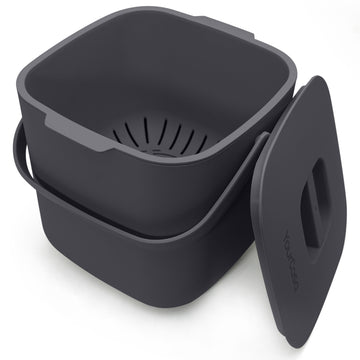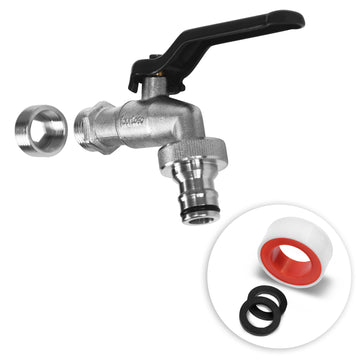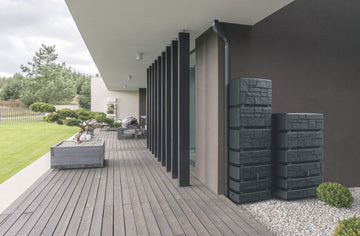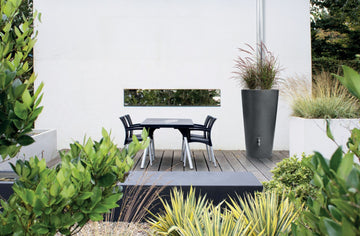A year in the sustainable garden: year-round tips for rain barrels and composters
by Robert Zielinski on Mar 06, 2024

However, grass, yellowing leaves on bushes and plants and other problems can quickly put a damper on your plans. With a few little life hacks, you can ensure that your garden looks like it's straight out of a single-family home brochure - and make things a little bit better for the environment.
How can you maintain your garden with rain barrels? You can maintain your garden all year round with rain barrels. Use the rain barrels to collect rainwater for irrigation and reduce your water consumption. In winter, you should protect the barrels from frost. In spring, you can then use the collected water for plants. In summer, you can optimize your water use with the help of an irrigation system.
In this guide, you will learn how to keep your garden healthy and happy all year round – and in a sustainable way too.
Spring: Preparation and start
After the cold season, nature comes back to life in spring - including in your garden. For you, this means it's time to prepare your garden for the coming growing season . Start by checking your rain barrels and making sure they are ready to collect the large amount of rainwater that spring usually brings. A clean barrel with a filter guarantees that the water stays free of contaminants. This is not only important for your plants, but also ensures that no mosquitoes breed in your barrel. You can use the water collected in your rain barrels to water your seedlings. This not only saves resources, but also ensures that the soil has an optimal moisture level.
The beginning of spring is also the perfect time to revitalize your composter. You should mix the organic waste you have collected over the winter, which is probably quite solid by now, thoroughly to allow better air circulation and speed up the decomposition process. You can then add fresh compost to help the microorganisms it contains to to reactivate the composting process . After a while, you can then use the resulting organic material to enrich the soil in your garden and support the growth of young plants.
Summer: Save water and nourish plants
In summer, when the sun is at its highest and the days are the longest, the plants in your garden enjoy plenty of sun, but also suffer from dryness from time to time. Nevertheless, gardening is the most fun when the weather is nice .
Because of the heat and dryness, you should pay particular attention to watering your plants in summer. Your rain barrels are now indispensable helpers that allow you to use precious rainwater, which is particularly healthy for your plants due to its softness. On top of that, thanks to the use of rainwater, you can reduce the consumption of tap water and thus lower your water bill. By watering in the cooler morning or evening hours, you avoid evaporation and ensure that the water gets to where it is needed: directly to the roots of your plants.
At the same time, summer offers ideal conditions to nourish your compost heap. Garden waste, such as grass clippings and dead flowers, as well as kitchen scraps enrich your compost and promote the creation of nutrient-rich fertilizer . You can use this to improve the quality of the soil in your garden and help your plants grow strongly.
Autumn: Turn garden waste into compost
Even though it rains a lot in autumn, it's windy and the temperatures are no longer the most pleasant, this season also has its beautiful sides. Autumn bathes the garden in warm colors - and brings with it an abundance of garden waste that you can use. Leaves and other organic residues provide the perfect basis for enriching your compost for next year. By alternating layers of green and brown materials in your compost, you promote efficient decomposition. Green waste, such as vegetable scraps or freshly cut grass, provide nitrogen, while brown materials, such as dry leaves and twigs, ensure good aeration and contribute carbon.
Make sure to mix the compost pile regularly to ensure even composting . By collecting twigs, leaves and other plant remains, you are not only preparing valuable fertilizer for the coming spring, but you are also tidying up your garden at the same time. It's worth it!
Winter: Care and protection
In winter, large parts of nature come to a standstill - this also applies to your garden. Even though snow has become rare in large parts of the DACH region (Germany, Austria and Switzerland), it is usually quite cold - and cold can damage both your plants and your utensils. That's why you should devote yourself to protecting your equipment in winter . This is especially true for your rain barrels. To avoid frost damage, it is important to empty them and, if possible, store them completely frost-free.
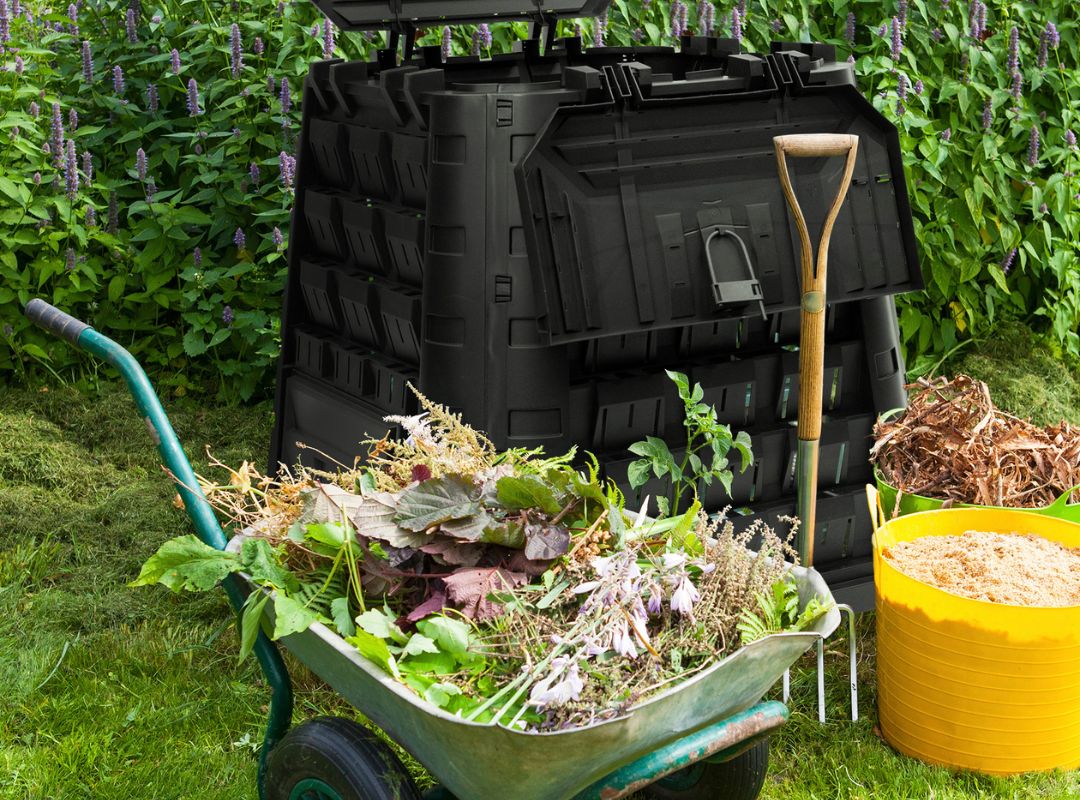
Your composter deserves attention too: by adding kitchen scraps and turning it occasionally, you can ensure that the composting process continues even in cooler temperatures. Winter also offers an opportunity to reflect and plan your garden. Review the efficiency of your water use and consider how you can improve your composting strategy in the coming year. Use the quieter days to maintain your garden equipment and make repairs so that everything is ready when spring arrives. This period of preparation and maintenance is crucial to making your garden resilient and laying a foundation for healthy growth in the seasons to come.
In our overview we show you the ideal activities in all four seasons at a glance:
- Spring:
- Activities: Checking and cleaning rain barrels, turning and filling composters, planting seedlings, enriching soil with compost.
- Advantages: conservation of resources, improvement of soil quality, promotion of optimal plant growth, sustainable garden care.
- Summer:
- Activities: Using rainwater for irrigation, composting garden waste, promoting plant growth, mulching.
- Benefits: water saving, natural fertilizer, healthy plants, maintain soil moisture.
- Autumn:
- Activities: Collecting leaves and garden waste, building compost heaps, tidying up the garden, preparing the soil.
- Benefits: Promote nutrient cycling, improve soil, create order, prepare for winter.
- Winter:
- Activities: Emptying and protecting rain barrels, turning compost, maintaining garden tools, garden planning for next year.
- Advantages: frost protection, continuous composting, maintenance, strategic planning.
Products that can be used all year round
At At YourCasa you will find many different rain barrels , kitchen composters and garden composters that you can use all year round. We will show you the most popular models.
Versatile rain barrels for every season
You can use all of YourCasa's rain barrels all year round. All models have one thing in common: they can be set up flexibly throughout the garden and collect water efficiently, provided you place them correctly.
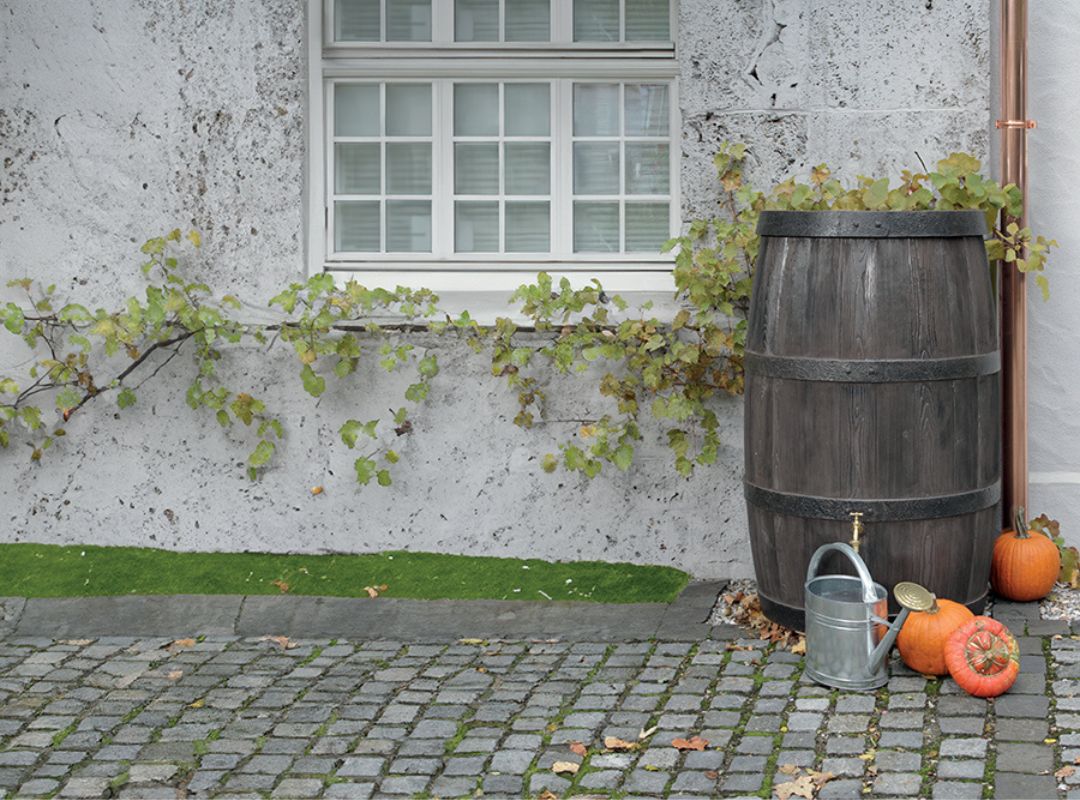
Some models are frost-proof in principle, but you should still empty them completely before winter - because damage can still occur , for example if the bins are not closed properly. You can play it safe with YourCasa Downpipe70 , which is equipped with an integrated shut-off valve.
You can find some of the most popular models and their advantages in the table below:
|
Model |
Volume (litres) |
Special features |
Price (€)* |
|
240 |
With tap, plantable lid |
109.99 |
|
|
290 |
With metal thread and lid, rotation process |
179.99 |
|
|
210/360/440 |
With tap, plant bowl and lid |
from 95,99 |
|
|
160/200 |
With downpipe connection set, with tap and lid |
from 59,99 |
|
|
300 |
In stone look, with metal thread, child-proof lid, only 40 cm deep |
324.99 |
*As of February 16, 2024; Prices may vary and are subject to change. For the latest information, see the product catalog.
Composter for the whole year
The YourCasa kitchen composters and garden composters are similar to the rain barrels. You can also use these flexibly all year round.
It's very easy to use: for example, when you fill your garden composter for the first time, you should start with a layer of breathable material at the bottom. This is followed by layers of "green" kitchen waste (such as vegetable scraps, coffee grounds, fruit peels) and "brown" materials (such as crushed eggshells, paper towels, chopped pieces of cardboard). To ensure that your composter doesn't smell unpleasant afterwards, you should make sure to use more brown waste than green. A ratio of 3:1 is ideal. If you then keep your compost slightly moist at all times, nothing stands in the way of an efficient composting process .
Do you want to know which kitchen composters from YourCasa are particularly popular? Find out here:
|
Model |
Volume (litres) |
Special features |
Price (€)* |
|
7 |
Odour-proof, removable inner insert, dishwasher safe |
28.99 |
|
|
4 |
Dishwasher safe, odor-proof, removable sieve |
23,99 |
|
|
6 |
Sustainable, washable, including biodegradable garbage bag |
34,99 |
|
|
6 |
With lid and wall mount, small and compact |
14,99 |
|
|
4 |
Real wood (acacia), stainless steel, dishwasher-safe interior |
39,99 |
*As of February 16, 2024; Prices may vary and are subject to change. For the latest information, see the product catalog.

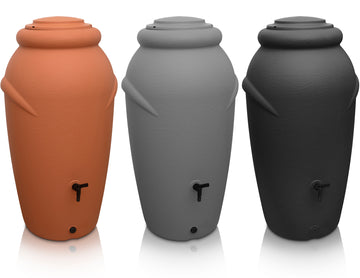
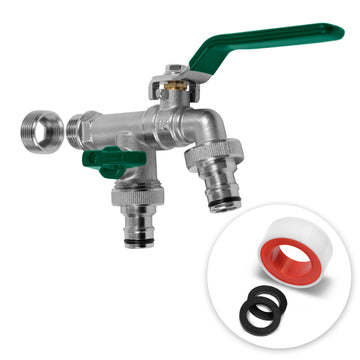
![Drei hohe YourCasa Regentonne 240 Liter [Wellen-Design] - Frostsicher & UV-beständige Gartentöpfe in den Farben Schwarz, Grau und Terrakotta, jeweils mit Drainagesystem für nachhaltige Bewässerung.](http://yourcasa.de/cdn/shop/files/ohnelogo_b8aeecac-557e-4106-a999-e77dcd160209.jpg?v=1707130230&width=360)
